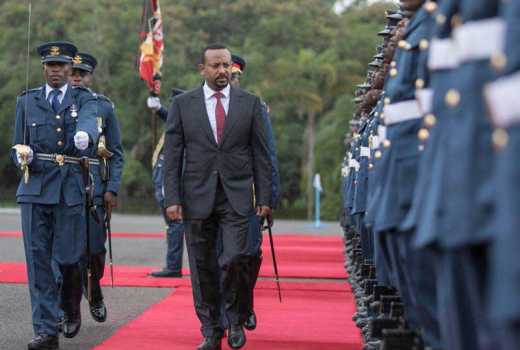
Ethiopia’s Prime Minister Abiy Ahmed Ali is in the country on a two-day State visit. Ali’s ascendancy to the office of Prime Minister followed the abrupt resignation of former Premier Hailemariam Desalegn early this year.
Ethiopia's history is almost similar to ours. Both countries have witnessed agitation for equity, as sections of their separate communities felt they marginalised, besides other ills that governments are normally accused of committing against its citizens. However, genuine negotiations between the long-time belligerents paved way for Ali to become the first Premier of Oromo descent.